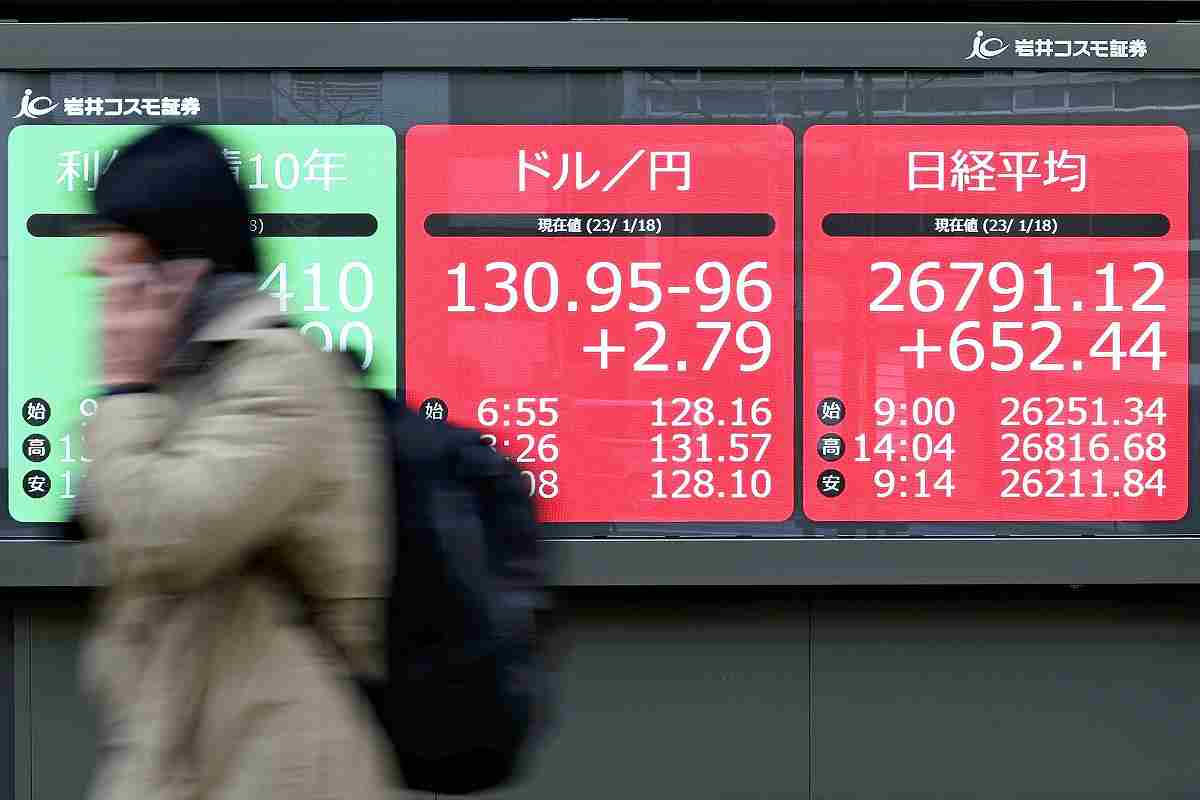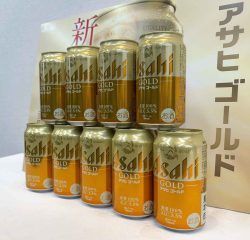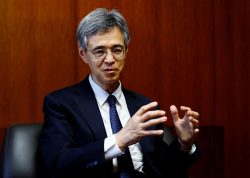
A display shows exchange rate and stock data in Chuo Ward, Tokyo, on Wednesday.
2:02 JST, January 20, 2023
When the Bank of Japan decided to continue monetary easing measures on Wednesday it was a riposte to market speculators who had been trying to inject momentum in the market in anticipation of another increase in the cap on benchmark 10-year Japanese government bond yields.
In December, the BOJ decided to allow 10-year JGB yields to move between plus and minus 0.5%.
The coupon rate on the benchmark bonds has continued to hit 0.5% since Jan. 6 and even breached the limit for four consecutive trading days since Jan. 13, amid anticipation that the central bank would widen the band during this week’s two-day Policy Board meeting.
The yields retreated sharply to 0.36% on Wednesday following the BOJ announcement after the meeting.
“If the market was making speculative moves in anticipation of a change in the monetary policy, I think this [decision] is a correction,” BOJ Gov. Haruhiko Kuroda said at a press conference on Wednesday.
The standoff between the BOJ and market speculators over the future of the nation’s monetary policy is far from over.
Since the BOJ decided to raise the cap on 10-year JGB yields to 0.5% in December, the yields for some of the shorter-term bonds have remained higher than the cap, even though they are supposed to be lower than those for the benchmark bond.
If the BOJ decides to raise the cap further, market speculators will launch massive selling as they will be able to buy bonds cheaper to make profits.
However, the BOJ discouraged such market speculations in Wednesday’s meeting by deciding to extend loans to private financial institutions at lower interest rates and for longer periods than before in line with market trends, thus lowering bond yields.
“Market functions will improve in the future through our flexible response,” Kuroda said.
Recent bond market moves have been triggered by wide differences between the BOJ’s explanations on key issues and the perceptions from market speculators.
How long the ultra-easy monetary policy will continue is one example.
“The policy of manipulating the benchmark bond yields has already entered the stage of collapsing,” said Izuru Kato, chief economist at Totan Research Co., citing the fact that the 10-year JGB yields have frequently breached the 0.5% cap.
According to Kuroda, however, the yield curve control policy is “sufficiently sustainable.”
The BOJ predicts the core consumer price index will increase by 1.6% in fiscal 2023 and 1.8% in fiscal 2024. Many market players believe that it is time to kick off discussions to normalize the nation’s monetary policy because the 2% inflation target is likely to be realized soon. But the governor said, “We’re not yet in a situation in which we can achieve the 2% inflation target.”
Following the BOJ’s decision to keep monetary policy unchanged, the Nikkei stock average of 225 selected issues listed on the Tokyo Stock Exchange’s Prime Section rose over 600 points on Wednesday from Tuesday’s close.
This suggests a wide range of investors support the monetary easing policy as a measure to stimulate the economy, in contrast to speculators who are pressing for an interest rate hike.
If stock prices rise and business confidence improves, consumption and investment could be stimulated, creating a virtuous cycle in the economy.
“Financial authorities and the market do not have to be on the same page all the time,” a bullish Kuroda said on Wednesday.
However, if the market fluctuates, it could destabilize the whole economy. The central bank is urged to provide careful explanations about its measures.
Top Articles in Business
-

Prudential Life Insurance Plans to Fully Compensate for Damages Caused by Fraudulent Actions Without Waiting for Third-Party Committee Review
-

Japan, U.S. Name 3 Inaugural Investment Projects; Reached Agreement After Considerable Difficulty
-

Japan’s Major Real Estate Firms Expanding Overseas Businesses to Secure Future Growth, Focusing on Europe, U.S., Asia
-

SoftBank Launches AI Service for Call Centers That Converts Harsh Customer Voices into Softer Voices
-

Green Tea Exports Hit Record High in 2025 Amid Growing Demand, Likely to Be Driving Force Behind Govt Export Target
JN ACCESS RANKING
-

Producer Behind Pop Group XG Arrested for Cocaine Possession
-

Japan PM Takaichi’s Cabinet Resigns en Masse
-

Man Infected with Measles Reportedly Dined at Restaurant in Tokyo Station
-

Israeli Ambassador to Japan Speaks about Japan’s Role in the Reconstruction of Gaza
-

Videos Plagiarized, Reposted with False Subtitles Claiming ‘Ryukyu Belongs to China’; Anti-China False Information Also Posted in Japan























